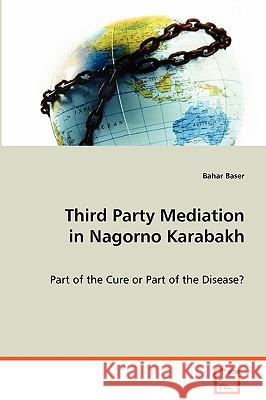Third Party Mediation in Nagorno Karabakh » książka
Third Party Mediation in Nagorno Karabakh
ISBN-13: 9783639076578 / Angielski / Miękka / 2008 / 76 str.
The dissolution of the Soviet Union has caused many conflicts of different types in the Caucasus region. Among them, the conflict in Nagorno- Karabakh turned out to be the most intractable dispute since it had the properties of a modern global conflict in terms of territorial, ethnic and national dimensions, intertwined with a historical burden of ancient grievances. Many major states and regional actors such as Iran, Russia, Kazakhstan, Turkey and OSCE, initiated third party mediation in order to resolve the conflict and to terminate violence. Today, many critics argue that the mediators were to blame for the delay of a peaceful settlement since they gave first priority to their own interests and stalled the negotiation process. In this book, the authors approach is predicated on various theoretical frameworks of mediation. The contribution of the mediators to the failure of negotiations is examined with a focus on the third party mediation; variables concerning the mediator, the conflict and the negotiation process. In doing so, the author finds the mediator motives to be of great significance when it comes to conflict settlement in strategically important regions.











